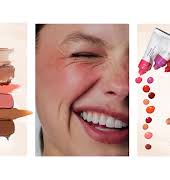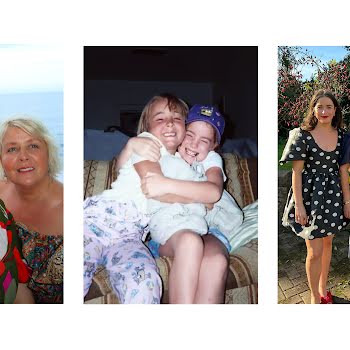
Canva
Everything you need to know about period health


From the most prevalent hormones during your menstrual cycle to lifestyle choices that may impact your cycle, we ask an expert on all things period health.
What’s *actually* happening at the different stages of our menstrual cycles? Are my hormones having an adverse affect on my overall mental health? Are my lifestyle choices having an impact on my periods?
These are the questions many women ask themselves.
In order to help demystify the menstrual cycle and gather concrete information on all things period health, we enlisted the expertise of Dr. Oxana Hughes. A consultant gynaecologist in the Beacon Hospital’s women’s centre specialising in women’s health, gynaecology and minimally invasive surgery, there’s no better woman to provide a full, immersive explainer.
Read on for our interview below…
Do you notice a lack of knowledge about the menstrual cycle in women presenting at your clinic and if so, would you agree that there needs to be more accurate information readily available for women to learn more about their menstrual cycle?
The female reproductive system undergoes monthly cyclical changes which are regulated by the central nervous system. These changes determine the menstrual cycle. Its main goal is to produce female hormones and allow women to become mothers.
Today, when the internet is available to most people, there is a vast amount of information available about women’s health. However, some information may be difficult to understand or it is somewhat inaccurate or misleading.
What are the main phases of the menstrual cycle and which of our hormones are prevalent during these stages?
The average menstrual cycle lasts 28 days, but can range between 21 and 42 days.
The first day of the period is the first day of the menstrual cycle.
At the same time, the Follicular phase starts. During this phase, the pituitary gland in the brain starts to produce Follicle-stimulating hormone (FSH). The FSH makes the follicles grow and produce oestrogen. Oestrogen will in turn stimulate the lining of the uterus to grow thicker to prepare for a fertilised egg to get implanted.
Next phase – Ovulation.
The mature egg produces so much oestrogen that it triggers the pituitary gland to drop the production of FSH and pick up the production of LH (luteinising hormone), which frees the egg. The egg can survive in the pelvic cavity for 24-48 hours, and if fertilised by a sperm, will start a pregnancy. The fertilised egg will then travel through the Fallopian tubes into the uterine cavity for implantation.
The egg leaves behind its shell–the corpus luteum—which starts to produce progesterone to help the lining of the uterus mature. This phase lasts about two weeks. If pregnancy did not occur, at around day 21 of the menstrual cycle, corpus luteum can’t cope any more, and progesterone production starts to decrease.
Eventually, progesterone and oestrogen levels are so low that the uterus lining breaks down, which is what becomes the period of bleeding. Then, in response to low oestrogen levels, FSH production again increases and the cycle repeats again.
Can these hormones impact on our energy levels, our overall feeling of wellness/mental health or make us feel more stressed etc?
During menstruation , bleeding can last between 2 to 7 days, but usually 3 to 5 days. The amount of bleeding is individual, but should not be very heavy to make you feel unwell and tired. Many experience mild cramping and discomfort during menstruation. If the pain is very severe, or you have an unusually heavy period or other worrying symptoms, there might be something else going on, so it’s best to talk to a doctor.
Most women are not aware of cyclical changes in the body, but some may be sensitive to hormonal shifts. About 80% of women experience some degree of premenstrual syndrome (PMS). These symptoms occur in the luteal phase, within two weeks before menstruation. Progesterone has a calming effect, and its levels are low in this stage – so some women might feel agitated, irritated and low. Other symptoms may include breast tenderness, water retention, occasionally some degree of constipation, hormonal acne.
The menstrual cycle changes throughout life. First period starts at around 10-12 years of age, but can range from 9-15 years. It may take up to three years for the body to adjust, balance the hormones and regulate the cycle.
During pregnancy and breastfeeding the periods stop, otherwise periods should be regular up to approximately mid-forties.
With age, the quality of the eggs declines, which is why the risk of miscarriages and chromosomal anomalies increases. The corpus luteum may also produce less progesterone and the cycles can become irregular. Despite not ovulating, ovaries still produce oestrogen, which will thicken the lining of the uterus, which can lead to heavy periods.
When the production of oestrogen declines gradually, the body can adjust, and when the periods eventually stop, they enter the next stage of their life, menopause, without major symptoms. However, if the drop in oestrogen levels is sudden, women may experience menopausal symptoms, such as night sweats, hot flashes, “brain fog“, difficulty concentrating, and insomnia. The average age of menopause in Ireland and England is around 51-53 years of age. Women are “officially “ menopausal after one year of missing periods.
Is there anything else you would like to add?
Many factors can influence the menstrual cycle. Occasional menstrual irregularity may be caused by stress, long travel, and a myriad of other reasons. Some types of hormonal contraception such as progesterone-containing mini pills, the Mirena coil, or Implanon, which are designed to stop the bleeding, can cause irregular bleeding. This is not concerning and improves when the causative factor is removed. However, if the symptoms persist, it is reasonable to consult your doctor.
Obesity, anorexia, and excessive strenuous exercises can also affect the menstrual cycle. Often periods stop completely. In these cases it is important to seek medical advice, as there may be other health implications.
Other lifestyle choices such as smoking and excessive alcohol consumption are proven to affect the menstrual cycle as well. This can lead to reduced fertility, irregular cycles, and other health problems. Therefore, it is important to be aware of these implications when considering health decisions and lifestyle choices.
Delivering expert advice in a friendly and professional way, Meaghers Pharmacy have redefined the role of the pharmacist in the communities they serve and offer accessible and affordable healthcare solutions to patients in need of expert advice. Use the code IMAGE15 for 15% off all full-price products on their website.




















